House Divided Read online
Page 2
“It’s like a disco in here.”
He picked up the phone. Mercifully, the stark blue light died.
“It’s for you,” he said, and held the receiver out to her.
A thin hand snaked out, took the receiver, and brought it back under the covers. She held it to the side of her half-hidden face, her eyes still sealed shut.
“Susan Hopkins,” she said in a serious voice, as though she had been up for an hour, had already eaten breakfast, and was being interrupted while going over some important paperwork—the President of the United States never slept.
A thought came to Luke: How many times?
How many times had he, or she, been awakened in the middle of the night because something horrible had happened, or was happening right now, or was about to happen? How many moments of intimacy, of normalcy, of just plain life—something many people took for granted—had been cut short or even demolished by phone calls like this one?
Half-asleep, he allowed himself to imagine another world, one where they didn’t have these jobs. The phone didn’t ring in the middle of the night with terrible news. She was on TV in some capacity. He was a college professor. It was a busy life, but things could be scheduled, plans could be made, and they didn’t have to hide their relationship.
He still worried about that part of it, maybe more than ever. The world seemed to have given them a free pass these past few weeks. Maybe it had been the influence of the holidays—people had their own lives and families to think about. Susan’s daughters had come in from the West Coast. He and Gunner had spent a lot of time here at the Residence over a few days. It had been awkward at first—Gunner was a little younger than Michaela and Lauren, and he had no experience dealing with the rare bird children of some of the richest people on Earth. Even so, they had all settled in together a little bit, and had a weird sort of Brady Bunch Christmas. It even snowed on Christmas Eve.
And somehow, some way, it all stayed out of the media. When Luke dropped Gunner back at his grandparents’ house, there were no news trucks parked outside. No reporters called Luke at his office, pressing him about his close advisory relationship with the President. It was quiet on the media front—too quiet. Whenever he asked Susan how this was staying out of the news, she just smiled mysteriously and said:
“Don’t worry. We have our methods.”
But he was worried. The situation gnawed at him. Mostly, he was worried about Gunner. The boy was growing up, and Luke wanted him to have something like a normal life. God knew he deserved it after everything he’d been through. He was still with Becca’s parents, and that was fine—if anything, they had been more cordial than usual just lately. They were nothing if not social climbers, and their former son-in-law was now quietly dating the President.
Truth be told, Luke would love nothing more than to have Gunner move back in with him. But he was still in the spy game, and running his own agency now. It was a lousy thing to admit, but he just didn’t have time to raise a son right now. If Gunner moved in with Luke, the boy would spend a lot of time on his own. For now, Luke made every effort he could to be a presence in Gunner’s life.
Luke shook his head, clearing the wandering thoughts away. Under the blankets, Susan was listening intently. For a moment, Luke held out hope that maybe this call wouldn’t be so bad. Heck, maybe it was even good news—something so good that it just couldn’t wait until morning. What would that be?
“Oh God,” Susan said, the tone of her voice dashing any hope he might have had. She took a deep breath and let out a long exhale. “All right. Look. I was asleep until a minute ago. Give me about a half hour to take a shower and have a bite to eat. In the meantime, start pulling together the usual suspects.”
Susan paused while the person on the other end spoke.
“Okay. Thanks.” The hand snaked out again and gave the receiver to Stone. Luke placed it back in its cradle.
“Bad?” he said.
“Yeah.”
She still hadn’t made any attempt to surface from under the covers. Luke’s eyes had already adjusted to the darkness, and she looked like a small child under there—one who didn’t want to get up and go to school.
“Plane crash in the Sinai Peninsula,” she said. “It’s a real mess. Jack Butterfield was on board. So was Sir Marshall Dennis and about sixty other people of varying degrees of importance. We don’t have the whole passenger list yet.”
She pulled back the covers. Her head was propped up on one elbow, her eyes open now and staring at him. They were blue eyes, framed in thick eyelashes. Her hair was beginning to get long. Gone was the conservative (and famous) Hopkins Bob, or Hopkins Helmet, depending on whether you loved her or hated her.
She was getting maybe just a little daring for official Washington, embracing her feminine side more than she had.
“Survivors?” Luke said.
She shook her head. “No.”
She sighed.
“I’ve known Hatchet Jack Butterfield for fifteen years. He was a fool and he was a drunk and he was a good ol’ boy—not my favorite combination. But he was also a decent man, very smart, and very close to the intelligence agencies and the Pentagon.”
“I know who he was,” Luke said.
She shook her head slowly. “I’ve known Marshall Dennis since I was a teenager. He was also a fool and a drunk, and he spent way too much time pawing at teenage girls, but…” She paused.
“Eh, forget it. Nobody’s going to miss Marsh Dennis. His ex-wives are probably all on the phone with their lawyers right now, directing them to make inquiries about the will.” She gestured at the phone. “That was Kurt Kimball.”
Luke nodded. “Of course it was.”
Suddenly, she slid out of bed. In the dim light, he watched her pad naked across the room. One last fleeting image of a different life passed through his mind—a life where it wasn’t time to get up yet.
“I need you at this meeting,” she said. “As much as I hate to say it, the Special Response Team should be in on this one.”
“Because of Jack Butterfield?” Luke said.
Yes, Butterfield was close to the intelligence community in the sense that he liked to visit their offices, listen to their stories, and play with their toys. In exchange for being treated like one of the big boys, he pushed their budget requests through Congress. The hatchet in Hatchet Jack came from his passion for cutting after-school activities and social programs for poor people.
Luke had been expecting a call, and then a visit, from Hatchet Jack one of these days. He didn’t look forward to playing footsie with Jack Butterfield, but it had to be done. The SRT was the President’s pet agency, but Congress made the budget decisions.
Well, he supposed that particular visit wouldn’t be happening now. Luke smiled inwardly. He would never have wished any harm upon Congressman Butterfield, and especially not on the other passengers, but…
He stood, went over to the bay window, and pulled back a corner of the heavy drapes. The forecast had called for snow, and it had been right. It came down heavy, blown by gusting winds. It looked like there were several inches on the ground already.
“It’s snowing,” Luke said. Now he did smile. “To coin a phrase, the morning commute is gonna be a mess.”
“That plane was brought down, Luke. Kurt thinks it was a targeted assassination. Worse, he thinks it might be the start of something bigger.”
CHAPTER THREE
5:17 a.m. Eastern Standard Time
The Situation Room
The White House, Washington, DC
“I’ve already seen the photographs,” an intern said.
“Gruesome. Corpses and body parts strewn across the hillsides. To think that Marshall Dennis is one of them. God. We studied him in an entrepreneurship class when I was at Wharton. He was amazing—a real force of nature. You wouldn’t think a guy like that would ever die. Like, he wouldn’t allow it, or something.”
Luke was riding in an elevator packed with White
House staffers and intelligence people. He glanced at the one who had spoken. The guy was very young, tall and fit, in a blue suit jacket and dress shirt with an open-throated collar, and a flop of blond hair nearly obscuring his face. He reminded Luke of New Wave rock bands from the 1980s.
The kid hadn’t been speaking to anyone specific, just all the elevator riders in general. He had made an announcement of sorts: he had seen the pictures already. Briefly—very briefly—Luke wondered which wealthy campaign donor the kid was the son or nephew of.
The elevator opened into the egg-shaped Situation Room. People who arrived there for the first time were often surprised at how small it was. When a crisis came, like now, for example, and the place started to get crowded, it could give a claustrophobic fits. It was hyper-modern and set up for maximum use of space, with large screens embedded in the walls every few feet, and a giant projection screen on the far wall at the end of the table. Tablet computers and slim microphones rose from slots out of the conference table in the center of the room—they could be dropped back into the table if the attendee wanted to use their own device.
Every plush leather seat at the table was already taken. The seats along the walls were filling up with young aides and assistants, most of them chatting among themselves, tapping messages into tablets, or speaking into telephones.
The young people were excited. Their futures were full of hope, and their eyes were bright with ambition. The fact that they had been awakened and summoned to an emergency meeting this early in the morning only underscored to them how important they were.
Down in the center of the room, where the actual decision-making would happen, the faces were decades older and the eyes were less bright. Susan Hopkins sat at the closest end of the oblong table, in a high-backed chair with the Seal of the President on it. At the far end stood big, chrome-domed Kurt Kimball, Susan’s National Security Advisor. A sprawl of tired-looking men and women took up the seats between them.
Susan and Luke always staggered their arrivals to emergency meetings like this. It was a tactic meant to obscure the fact that they had just awakened in bed together. One glance from Kurt told Luke all he needed to know: they weren’t fooling anyone—at least not anyone who mattered. Luke took a seat in the back row along the wall.
He watched Susan, just slightly below him and to his left. She held a large white coffee mug in one hand. She looked good—slim and fit in a dark blue pantsuit, her hair just a little bit wild. Susan could make the most conservative outfit look sexy. She was talking seriously to her chief-of-staff, Kat Lopez.
Stone looked Kat up and down. Long black hair, pretty face, dark almond eyes, and a tall, full-figured body hidden inside a blue business suit—she looked almost as good as Susan. Her eyes were tired, though, and were starting to show crow’s feet at the edges. Kat was not as young as she looked, and the demands of the job were putting some wear and tear on her.
Suddenly Kurt clapped his big stone hands. He had played basketball in college. His hands were enormous. Kurt himself was big, but his hands looked like they were on the wrong body.
“Order, everybody! Come to order, please.”
The place quieted down. A couple of aides continued to talk along the wall. It was early morning, people were drinking coffee, revving up, starting their day. This was a place for talkers. Quiet, introverted young people didn’t usually end up working at the White House.
Kurt clapped his hands again.
CLAP. CLAP.
CLAP.
The last one sounded like an unabridged dictionary slamming onto a marble floor.
The room went dead quiet.
“Good morning, everyone,” Kurt said. “Thank you for arriving quickly. You all know who you are, so we’re going to skip the introductions.” He paused and looked at Susan. “Madam President?”
“Mister National Security Advisor?” she said.
“Are we ready?”
Susan shook her head. “No. But that never stopped us before.”
Kurt glanced at the young woman sitting just to his left. Luke recognized her as Kurt’s long-time aide. She still wore her hair in the Hopkins Bob that Susan had recently abandoned. “Amy, let’s start with Sharm El Sheikh.”
On the large screen behind Kurt, and the smaller screens around the room, a photograph of an airport terminal appeared. The terminal’s roof was rounded and billowy, almost as though it were a tent. In the foreground of the photo was a ten-story control tower. In the background and fading into the distance were jagged red and brown mountains.
“This is Sharm El Sheikh International Airport,” Kurt said. “It’s the third busiest airport in Egypt, and serves the Sinai Peninsula, particularly the Red Sea tourist resorts located in the south. A little over an hour ago, it was the site of a devastating plane crash in which eighty-three people perished. This includes sixty-eight passengers, twelve cabin crew, and the three pilots on the flight deck—everyone on board the plane.
“Among the passengers were Sir Marshall Dennis, OBE, founder and chief executive of Dennis Hotels Worldwide, as well as the Loose Lips magazine publishing empire. Also on board were United States Representative from Texas Jack Butterfield, and Egyptian Consul-General to London Ahmet Anwar. The flight was a charter from London, carrying a group planning to celebrate the opening of a new Dennis Hotel on the Red Sea, a joint venture with the Texas-based Bonanza Hotel Group and the Egyptian government itself.”
Kurt paused for a moment and looked around the room. “The plane was arriving, and exploded in midair on its final approach to the runway. All indications are that it was foul play. The plane was three years old and had passed all recent safety inspections with no red flags. This suggests that either a bomb was planted on board, or the plane was hit by hostile fire, possibly a shoulder-fired rocket launched from the mountains you see in the photo. There were no Egyptian military in the vicinity at the time, and satellite footage shows no unauthorized use of Egyptian airspace. So there’s no chance someone fired on them by accident.”
“Which way are we leaning?” Susan said. “Bomb or rocket fire?”
“Rocket fire,” Kurt said without hesitation. “The plane was operated by TUI Airways, the largest charter flight company in the world, with an excellent safety record and a reputation for stringent background checks of employees. The flight departed from Gatwick Airport, which maintains tight security and has no history of lapses or breaches. Of course, the investigation into the personnel who loaded or were in contact with the plane before departure is just beginning. But for the moment, I am going to go out on a limb and say I have no reason to believe that a bomb was placed on board.”
Kurt looked at a man in military dress greens sitting at the conference table. He was thin and sinewy, square-jawed, with a gray flattop haircut. His hand was raised just slightly. Luke recognized him instantly.
“General?” Kurt said.
“Frank Loomis with Joint Special Operations Command,” the man said. “You’re not out on a limb. Without divulging too much, it’s safe to say we have people on the ground in Egypt, Libya, Saudi Arabia, and Iraq. Our early intelligence suggests that this was an attack by Wilayat Sinai, probably with an assist from out-of-towners. Maybe Al-Qaeda, maybe ISIS. Furthermore, we’re showing that…”
Kurt held up a big hand in a STOP gesture. Heavy hitters visited here a lot, and they were accustomed to running things. But they tended to find out that this was Kurt Kimball’s domain. He called the tune and you danced to it.
“Okay, General. Let’s take this one step at a time, and get everyone here on the same page. It’ll make life easier down the road.”
The general grunted, possibly in agreement, possibly in frustration.
“Amy, bring up the Sinai Peninsula, please.”
On screens all over the room, maps of the Sinai Peninsula appeared, sandwiched between the vast landscape of Egypt proper to the west, the Mediterranean Sea to the north, Israel to the northeast and the sliver of the Red Sea di
rectly to the east. Luke knew the terrain well.
“The Sinai Peninsula is the upside-down triangle you see here. Nominally part of Egypt, it’s been a political football throughout human history. From 1968 until 1980, it was occupied by the Israelis in the aftermath of the Six Day War. Border tunnels are routinely discovered between the north of the peninsula and the Gaza Strip, suggesting steady movement of fighters and materials between those two places.
“The local population are nomadic Bedouins, Sunni Muslims, elements of whom have become increasingly radicalized in recent years, particularly as Red Sea tourism in the south and east has grown.”
A middle-aged woman in a business suit raised a hand. “Do you suppose this is because beach resorts bring Western culture, like alcohol, dancing, and women in bikinis?”
Kurt shrugged. “I’m sure that offends some sensibilities. And I believe that is probably the reason Marshall Dennis seems to have been targeted specifically. His resorts have a reputation for a certain brand of hedonism, and his magazines are known for salacious celebrity gossip and scantily clad young models.”
“Marshall Dennis was a pig,” the woman said.
A few people laughed. Luke rolled his eyes. It might be a little early in the morning to climb up on a soapbox. Anyway, the man was dead.
“People have strong opinions about Sir Dennis,” Kurt said. “But no matter his faults, to be clear, an element of this is economic as well. The Bedouins have been pushed off ancestral lands to make way for new development, and a class of well-paid Egyptian and international workers have been flying in to work at the resorts, causing an infrastructure building boom and driving up the prices of nearly everything. This is far from the first terrorist attack in that region.”
He glanced at his aide. “Amy, can we see the list?”
On the screens, a typed list appeared. There was very little graphic design. Each entry had a title in bold, and a brief description underneath. The list began to scroll down, giving a sense of its length—perhaps thirty or forty entries, all of them attacks.

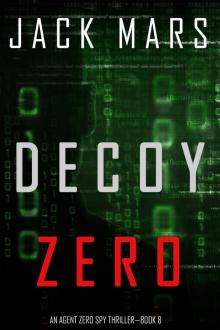 Decoy Zero
Decoy Zero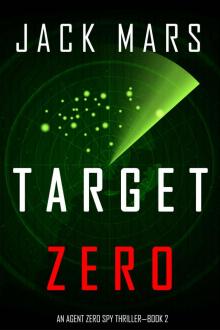 Target Zero
Target Zero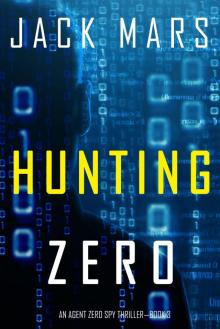 Hunting Zero
Hunting Zero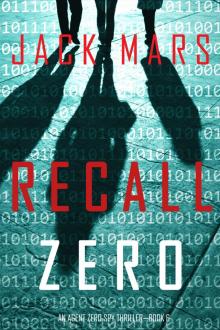 Recall Zero
Recall Zero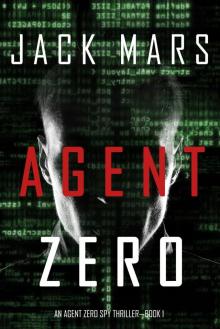 Agent Zero
Agent Zero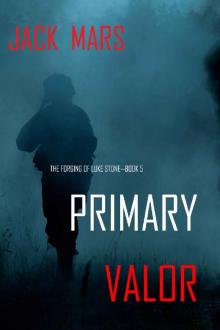 Primary Valor
Primary Valor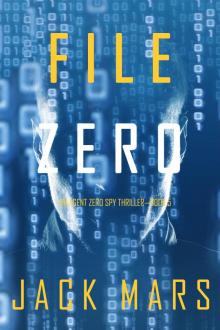 File Zero
File Zero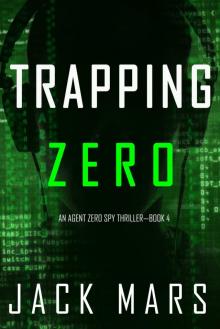 Trapping Zero
Trapping Zero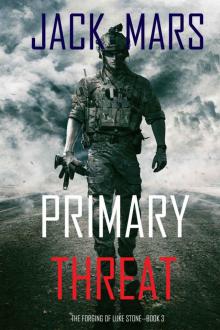 Primary Threat
Primary Threat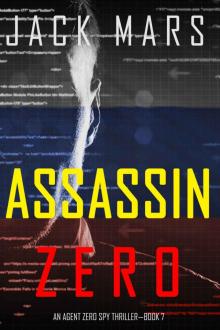 Assassin Zero
Assassin Zero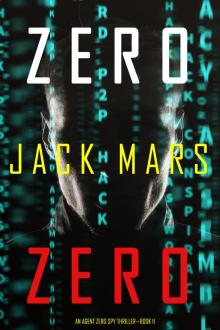 Zero Zero
Zero Zero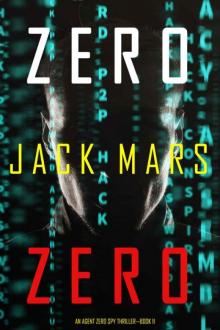 Zero Zero (An Agent Zero Spy Thriller—Book #11)
Zero Zero (An Agent Zero Spy Thriller—Book #11)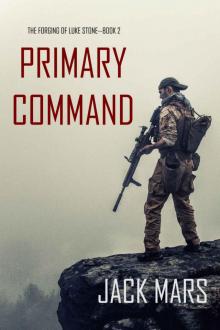 Primary Command
Primary Command![[Luke Stone 02.0] Oath of Office Read online](http://i1.bookreadfree.com/i/03/21/luke_stone_02_0_oath_of_office_preview.jpg) [Luke Stone 02.0] Oath of Office
[Luke Stone 02.0] Oath of Office House Divided
House Divided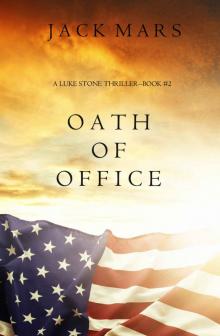 Oath of Office (a Luke Stone Thriller—Book #2)
Oath of Office (a Luke Stone Thriller—Book #2) Our Sacred Honor (A Luke Stone Thriller—Book 6)
Our Sacred Honor (A Luke Stone Thriller—Book 6)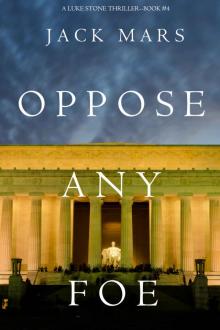 Luke Stone 04 - Oppose Any Foe
Luke Stone 04 - Oppose Any Foe Our Sacred Honor
Our Sacred Honor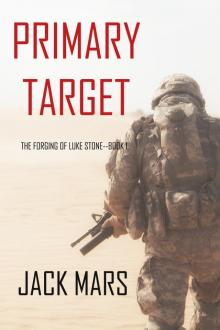 Primary Target
Primary Target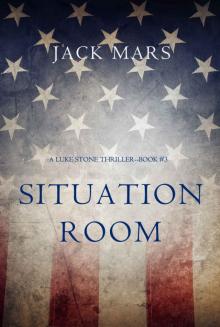 Luke Stone 03 - Situation Room
Luke Stone 03 - Situation Room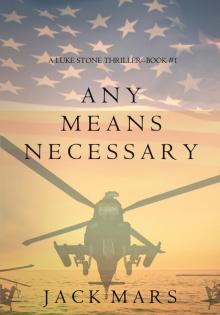 Any Means Necessary: A Luke Stone Thriller (Book 1)
Any Means Necessary: A Luke Stone Thriller (Book 1)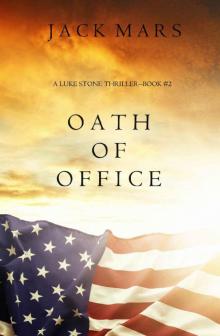 Oath of Office
Oath of Office